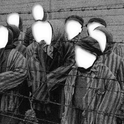Talking about racism and antisemitism can get you into trouble, as Diane Abbott knows well. The MP for Hackney North and Stoke Newington has been suspended from the Labour Party for a second time for her remarks on the subject.
The first occasion was in April 2023, when Abbott asserted in a letter published in the Observer that Jewish people and Travellers experience “prejudice”, just like redheads, but that only black people are subject to racism “all their lives”. Abbott’s remarks, which seemed to propose a hierarchy of suffering, provoked a torrent of criticism. She swiftly apologised, but was suspended from the Labour party until the July 2024 election.
In a BBC interview released this month, Abbott addressed the theme once again—and was promptly suspended again. There are “different types of racism”, she insisted. According to Abbott, skin colour immediately renders a black person vulnerable in ways that paler-skinned minorities do not experience.
By proposing that there are different sorts of racism, Abbott raised an important issue, however. In fact, the juxtaposition of antisemitism with anti-black racism crystallises the challenge inherent in developing an anti-racist politics that is consistent, universal and sensitive to the experiences of different minorities.
Abbott is surely correct when she insists that racism is not just one thing. There are systemic, racialised inequalities in the benefits system, the labour market, housing and policing. There are widely disparate outcomes in health and education. But there are also sharp differences among people of colour and other racialised minorities. South Asian women are twice as likely as white women to die in childbirth, but black women are four times as likely to do so as white women. The EVENS survey, conducted by the Centre on the Dynamics of Ethnicity at the University of Manchester in the aftermath of the pandemic, showed just how extreme the disadvantages faced by minorities in Britain are, but also how varied the experiences of different groups can be. That survey found that Gypsy and Traveller people encountered some of the most negative outcomes, for instance.
By emphasising skin colour, Abbott seemed to pass over the more profound and consequential causes of racism. The signifiers of “race” (which include, but are not limited, to skin colour) have been produced and reproduced in human culture; they are something that we have to learn to see. There is nothing natural about racism; it has no biological inevitability.
In Britain, we still have to reckon with the histories and legacies of enslavement and colonialism in producing and reproducing racism. Eric Williams, a great historian of slavery as well as being the first prime minister of Trinidad and Tobago, grasped this when he wrote that, “Slavery was not born of racism: rather, racism was the consequence of slavery.” It is history, not biology, that has led to the injustices and violence of racism today.
This applies to antisemitism as much as it does to racism directed at people of colour (some Jews, of course, are people of colour). The idea that Jewish people suffer from racism is the chief takeaway from the recent Commission on Antisemitism, chaired by John Mann and Penny Mordaunt, which reported to the Board of Deputies of British Jews this month. “Antisemitism is racism and must be treated as such,” Mann declared when the report was published on 15th July.
This signals a notable and unexplained change of direction by Mann and the Board. For much of the last decade they have addressed antisemitism as a sui generis phenomenon, separate, and in need of its own special measures. Until now they have promoted the International Holocaust Remembrance Alliance Working Definition of Antisemitism (also known as the IHRA definition) and have pressured universities and other bodies to adopt it. With this latest report, by contrast, they emerge as champions of the same equality, diversity and inclusion processes that are used to protect other vulnerable groups from racism.
What does it mean to say that Jews face racism? Jewish people, as a group, do not suffer material injustices today to the same degree as other racialised minorities. There are pockets of poverty among them, and the EVENS survey noted Jewish experiences of health inequalities and housing and job precarity, but Jews are the minority in Britian least likely to be found living in poverty. The racism which Jewish people encounter arises most usually in verbal abuse or harassment, online or in person, and (less frequently) in attacks on Jewish people and property.
But this balance between material prosperity and personal vulnerability has emerged relatively recently. In western Europe, it is only since the defeat of Nazism that anti-Jewish discrimination has ceased to be state policy. In eastern Europe, state-sanctioned discrimination only ended with the collapse of communism. In Britain, Jews remained subject to systemic discrimination even after the Second World War. Until the 1970s parts of the legal and medical professions, some elite private housing developments and many clubs were closed to Jews, and private schools imposed quotas on Jewish pupils. As with the colonial histories shaping the material injustices many people of colour face, these structural disadvantages had deep roots—in this case, in histories of Jewish exclusion in Christian Europe—and these roots remain.
Mann and the Board of Deputies are correct when they say that antisemitism is a form of racism. But in making this important association, they fail to recognise that antisemitism no longer carries the same degree of structural consequences as other racisms in Britain. This is the element of truth contained in Abbott’s ill-judged letter of April 2023.
The commission’s new report also illustrates how the cause of anti-racism can be misused. In his foreword, the president of the Board of Deputies, Phil Rosenberg, fails to distinguish between the increase in reported antisemitic incidents since October 2023 and legitimate protest and journalism responding to the death and privation Israel has inflicted on the people of Gaza for the last 21 months. This is what happens when the idea of racism becomes synonymous with taking offence, and anti-racism is not tethered to a set of universal principles.
The Sri Lankan-British radical Ambalavaner Sivanandan once noted that “racism never stands still”. We need to develop an understanding of the way racism changes over time, as well as the distinctive experiences it produces.
The recent comments by Abbott and Mann show that the UK’s politicians need to find better of ways of thinking about racism and of acting against it. We must not shy away from such debates, nor shut them down.
We need to be able to acknowledge and discuss different experiences of racism; diminishing some and magnifying others is a race to the bottom—and a shortcut to defeat for anti-racist politics.












